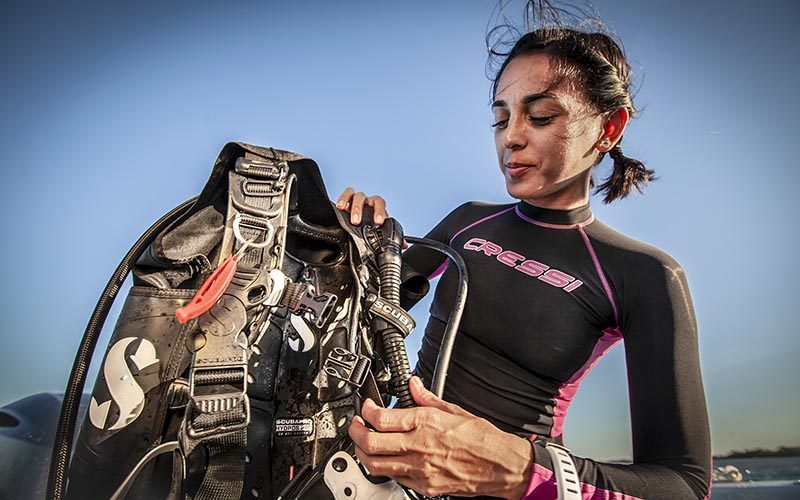This article is the fourth in a series about safe dive businesses operations in the context of COVID-19. As eager divers look forward to getting back in the water, dive operators want to know how to ensure everyone’s safety. The following Q&As have been compiled from questions sent to DAN by divers, dive professionals and dive business owners and are intended to help everyone get ready for a safe return to the water.
Should I request something from my customers prior to their arrival?
It takes only one infected person to spread the virus. Clients may not know they are infected, deny contact with an infected person, or assume that minor symptoms are not related to COVID-19. It is therefore important to ask if they have any indication of being unwell and encourage them to stay home or speak to a physician. You may want to consider refunding or rescheduling. You may also consider limiting visitors to only those who will be participating in diving or related activities.
How can I best screen my customers to mitigate the risk of COVID-19 infection?
At this stage of uncertainty, and without a commercially available over-the-counter diagnostic test, screening for COVID-19 in the field would be a complicated issue. This is true for health care professionals and even more so for lay people.
No single screening process is perfect or suitable for all dive operations. With this in mind, you may want to consider the following, adapted to your specific situation, location, conditions and applicable regulations.
- Ask customers if they have any symptoms such as a cold, sniffles, coughing, fever, congestion, excessive fatigue or shortness of breath. Verify their answers with your observations during initial screening and afterward during normal activities. Note, for example, unwell appearance or unusual fatigue.
- Ask customers if they have been diagnosed with COVID-19. If yes, you should ask whether they have been examined by a medical professional and declared fit to dive.
- Ask customers if they have been in contact with anyone infected or suspected of having been infected in the past two weeks.
- Using a contactless thermometer, take customers’ temperatures daily and record these readings.
Next, inform customers of your infection control procedures: hand-washing/disinfecting, social distancing, wearing a mask, not sharing equipment, gear disinfection protocols and procedures specific to boats, the surface, etc.
Be sure to enforce your policies consistently among staff and customers — including screening and exposure/infection risk guidelines. Adhere to all local, state and federal orders.
If in doubt, consider prioritizing the health of staff and other customers over normal business.

Will maintaining social distance between customers in my dive center prevent the spread of the virus?
Social distancing should be enforced, but is insufficient on its own to prevent the spread of COVID-19. Social distancing should reduce the spread of the virus between people, and the use of masks would reduce the risk further. Because clients might touch equipment or products, consider providing hand sanitizer or hand-washing facilities. You may also consider reducing the amount of stock in your shop area, as this would reduce the amount of disinfection necessary.
Can I safely conduct classroom activities?
If your business is able to offer distance learning or e-learning, this is a good option for decreasing the risk of transmitting COVID-19 among customers and staff. If this is not an option, consider setting up the classroom to comply with social distancing requirements. Ask students to wear protective facemasks and wash their hands before and after classes. If equipment is used during class time, ensure it is always disinfected between students. Ensure that desks and chairs are disinfected each day or between classes of different students. Be sure to question potential visitors to your shop, including students, to ensure they do not have symptoms and have not come into contact with an infected person.
Are there any areas of my dive shop which should be temporarily closed or made unavailable to customers?
Changing rooms carry a heightened risk of contamination. Personal belongings of customers (including clothes) should be stored in such a way as to avoid contact with common surfaces. If stored in lockers, these must be sanitized after each use. To minimize the risk of contact, consider asking customers to store personal items in plastic bags. Bathrooms also warrant special attention and should be disinfected regularly. Showers could be temporarily closed, and clients encouraged to shower and rinse their gear at home.